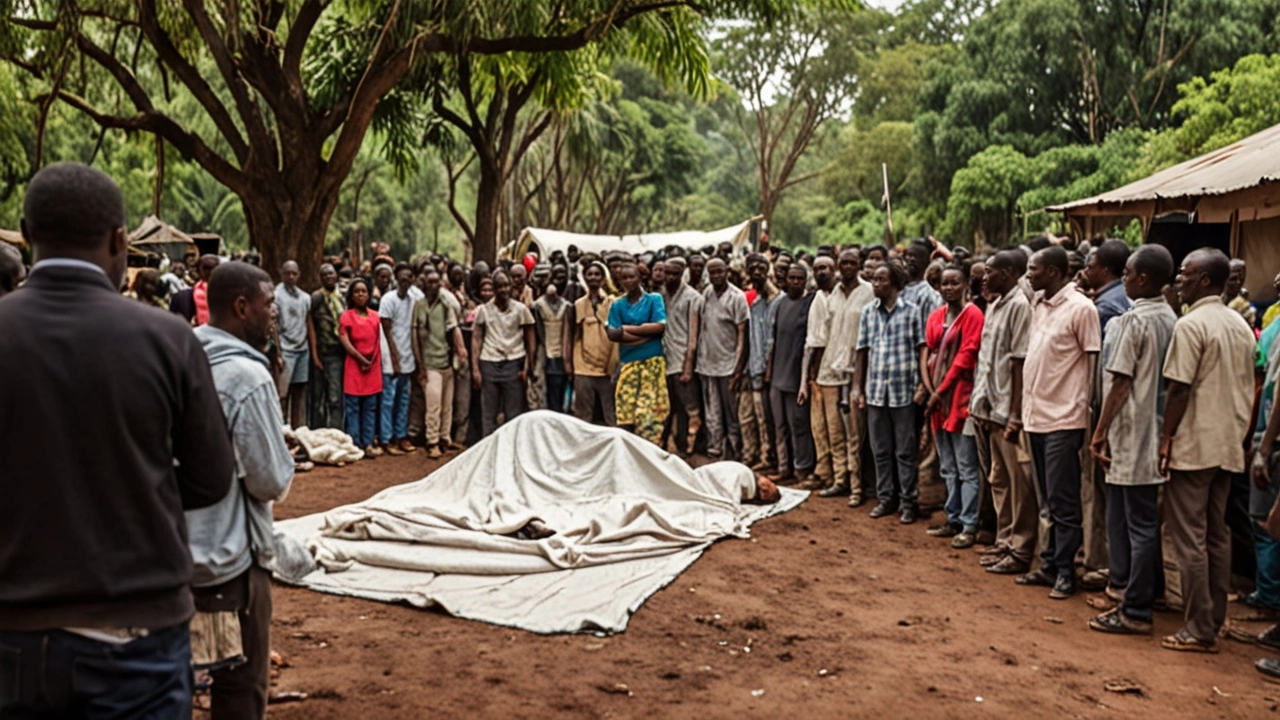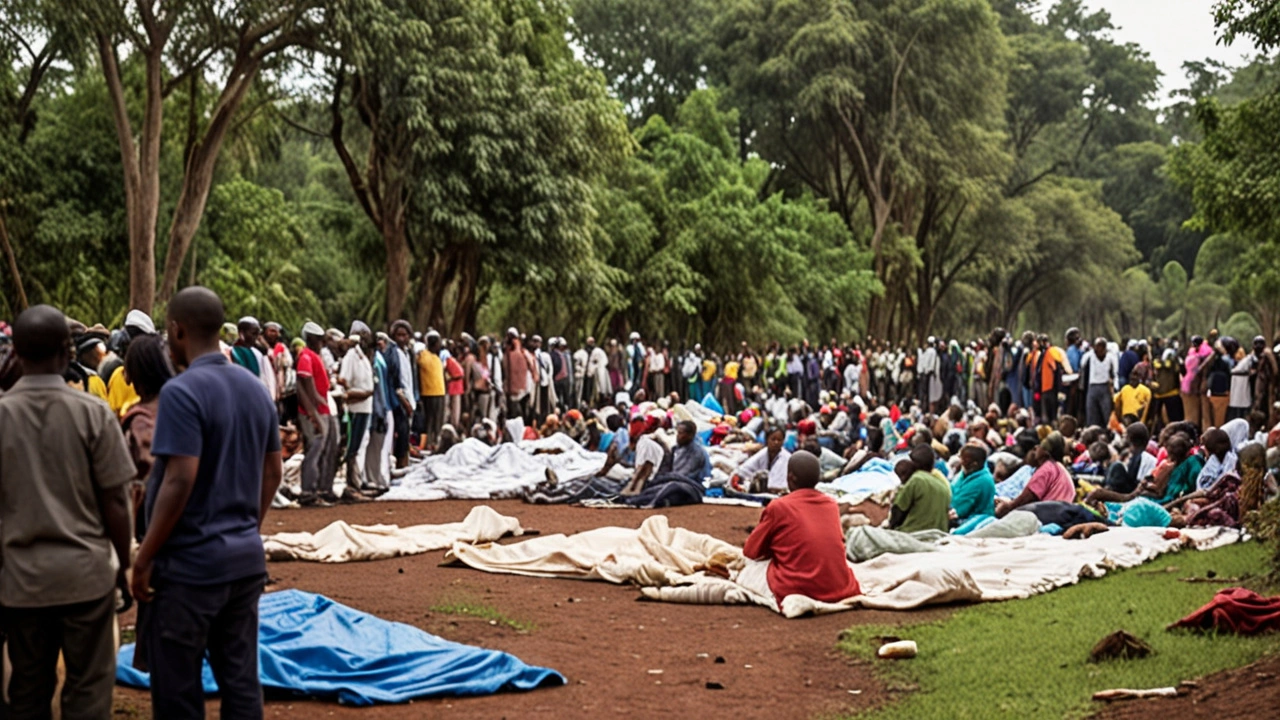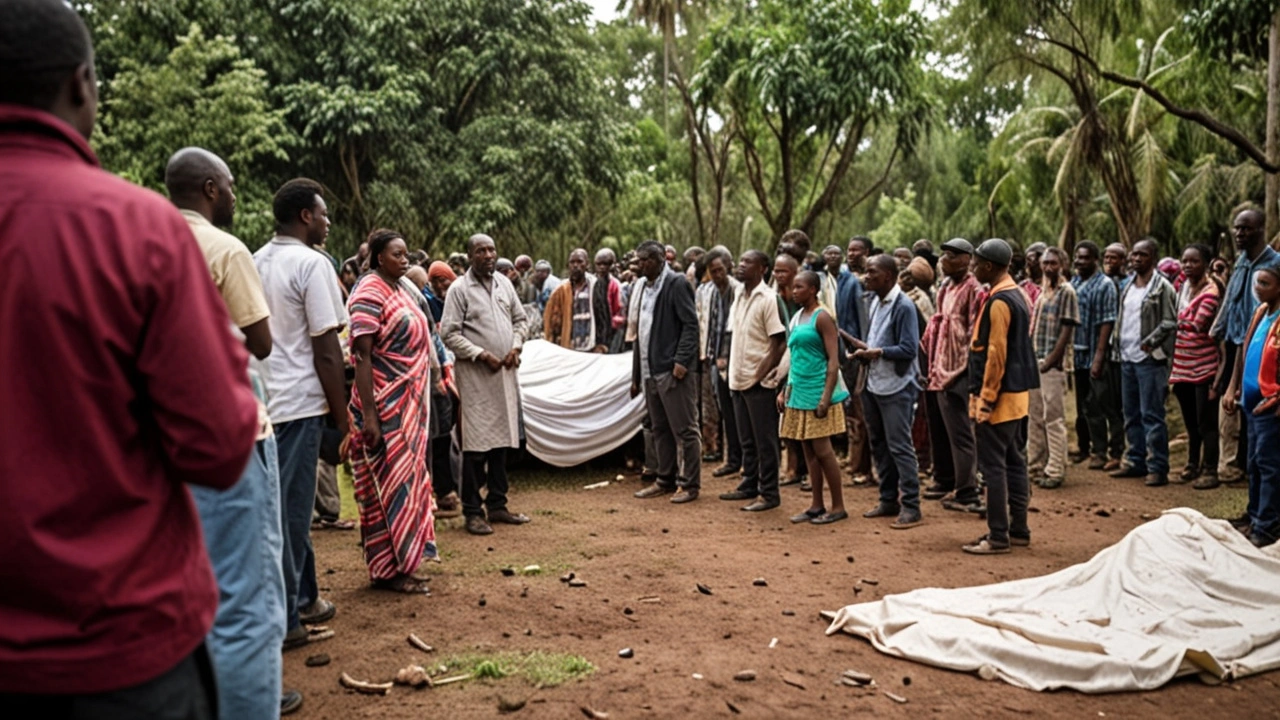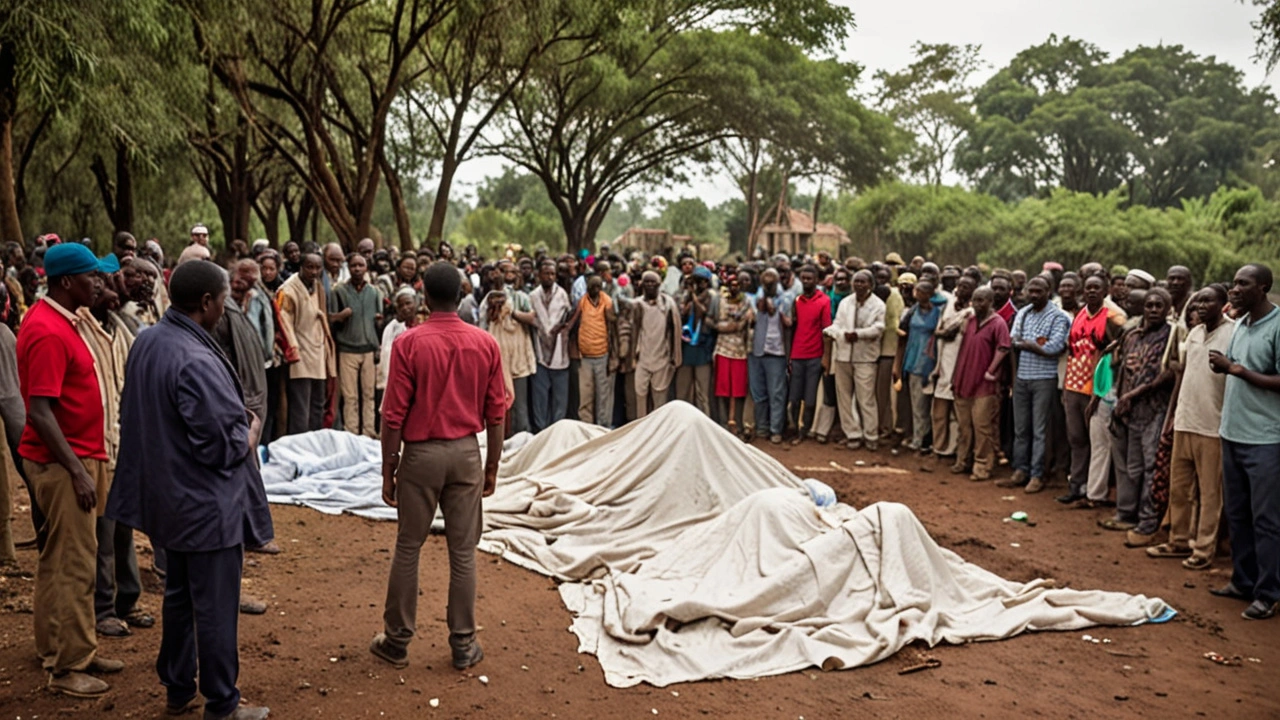DCI Chief Reveals New Details About Gruesome Murder of Women in Mukuru kwa Njenga

In Crime
Introduction
The Directorate of Criminal Investigations (DCI) has recently unearthed fresh details surrounding the tragic discovery of six female bodies in Mukuru kwa Njenga. On July 12, 2024, the grizzly find shook the residents and raised alarm bells about the safety of women in Nairobi's informal settlements. This revelation from DCI has not only anchored fears but also sparked an intense demand for justice from various quarters, including high-ranking officials and human rights organizations.
The Discovery
The gruesome discovery was made in an abandoned quarry that had long been a ghostly reminder of the area's industrial past. The bodies, all female, were found wrapped meticulously in nylon papers and secured tightly with ropes, indicating a cold and calculated execution style. The eerie scene suggested a level of premeditation and brutality unheard of in the recent history of the locality.
The Victims
Each victim bore signs of severe mutilation, leading investigators to believe these were not isolated acts of violence but part of a broader, more sinister plot. The fact that all the victims were women has highlighted a pressing concern for the safety of women in Mukuru kwa Njenga and other similar neighborhoods. This case has become a grim reminder of the perils that women face daily, often silently suffering in oppressive environments.

Initial Investigations
DCI director general Mohamed Amin stated that the preliminary investigation suggests the women were killed in a similarly brutal fashion, hinting at a possible serial perpetrator or a group operating with disturbing efficiency. This revelation has sent shockwaves through the community and beyond, prompting many to question the deeper societal issues at play. Early indications point towards a complex web of motivations, possibly extending to organized crime or vigilante justice.
Public Outcry
The haunting details of this case have provoked significant public outrage. Prominent figures, including Faith Odhiambo, President of the Law Society of Kenya, have called for a thorough and expeditious investigation. Odhiambo’s sentiments reflect a broader societal demand for accountability and protection for vulnerable populations. Grassroots organizations and women's rights groups have also mobilized, urging the DCI and the government to prioritize women's safety.
The Investigation
The DCI has left no stone unturned in their quest for answers. Teams of forensic experts are meticulously analyzing the crime scene and the bodies, which have been transferred to City Mortuary for detailed post-mortem examinations. The aim is to gather as much evidence as possible to piece together the final moments of these women’s lives and find leads that could point to their killers.

Speculations and Connections
As the investigation deepens, various speculations have surfaced regarding the motive behind these killings. Some believe there could be a connection to the recent anti-government protests, which have seen an increase in tension and violence within the region. This theory, if proven true, could suggest a politically charged undertone to the murders, raising the stakes for both investigators and the government.
Impact on Local Community
The impact of this discovery on the Mukuru kwa Njenga community cannot be overstated. A neighborhood already grappling with issues of poverty, crime, and marginalization now finds itself at the center of a horrifying tragedy. The fear and uncertainty that have gripped the residents are palpable. Many women in the area now live in constant fear, altering their routines and limiting their movements in a bid to stay safe.
Calls to Action
There is an urgent call to action from all corners of society. Activists are demanding not only swift justice for the victims but also long-term measures to safeguard women's rights and security. This case has underscored the need for systemic changes to address the root causes of such violence, ranging from economic disenfranchisement to the normalization of gender-based violence.

Conclusion
As the DCI continues its investigation, the eyes of the nation remain fixed on Mukuru kwa Njenga. The quest for justice for the six women brutally murdered and discarded like refuse is more than just a fight for their memory. It is a pivotal moment that could determine the trajectory of women's rights and safety in Kenya. The unfolding developments in this case will be crucial in shaping public policy and societal attitudes toward gender-based violence.
This heartbreaking incident serves as a stark reminder of the perils that remain hidden just beneath the surface of society’s daily hustle. The demand for justice will not wane, and the DCI’s findings will be instrumental in providing much-needed closure and paving the way for substantial change.
Write a comment